Being on the road every day with barely enough time to use the bathroom, doesn’t leave you much time to organize your books. Traveling from one stop to another, your receipts usually end up on the floor or in the glove box. When you finally get time to think about them, you have either lost some or they are just a disaster.
For a Truck Driver, receipts are critical, you need every deduction you can get your hands on. By having a good system in place, will not only save you from stress, but it will put money in your pocket!
Here are some tips for handling books correctly:
Accounting System
Regardless of what type of business you choose to be, you need the right accounting system. You need the most convenient and easiest to use.
Most businesses use either a cash-based or accrual-based system. Cash-based is counting income when you receive money and expenses when you pay them- this being the most popular. Accrual-basis of accounting, expenses are matched with the related revenues and/or are reported when the expense occurs, not when the cash is paid.
There are many types of accounting software you can use to track your income and expenses, you can also hire an outside bookkeeper to do work for you. QuickBooks has a app for your smart phone that works nicely.
Keeping track of your receipts
The easiest thing I found was an app for my phone that I could take a picture of my receipt as I spent money, preferably one that integrates with your accounting software. Take a picture, throw your receipt in a monthly folder for safe keeping. I recommend www.Hubdoc.com or https://www.receipt-bank.com, both are good and easy to use.
These connect with a couple difference accounting systems and will bring in your chart of accounts. This makes it easy to route the receipt to the correct account. You can setup to automatically copy to your accounting system. This is going to save you a ton of time from entering them into your system. These apps save your receipts and are great in case you lose your original copies. They allow you to print them.
Saving all of your business-related receipts will make audits go much smoother. Create a file folder for each month/year. Then once your receipts/bills are captured, you can file them away in a couple of minutes. (You can also use an app to pay your bills on the road called www.bill.com and others.)
Checking Accounts
Always keep your business and personal expenses separated. The best way is to use a business checking for your business and have a personal checking for you. You want to audit-proof your books as much as possible. The trucking industry is one of the most audited by IRS and States.
Your checking account should be audited and reconciled on a monthly basis. You should always save a copy of your bank statements. They are needed for audits and for your taxes to ensure you don’t miss any income and expenses. Always make sure you check your check numbers to ensure all of them have been accounted for and are correct. Checks can be forged and can cause you unnecessary expenses. Double checking might just save you some big bucks.
Maintain your bookkeeping daily
This is essential to having an accurate account of what your profits and losses are. Once you have your system in place, keeping books should only take a small amount of your time. In the long run, this will save you time and money.
As a Tax Professional – I couldn’t help but throw in the deductions for your taxes.
Knowing Your Deductions
The most important thing to know if what tax-related adjustments and deductions you can take to not only lower your adjusted gross income (Gross wages less credits), but what deductions will help you on paying less taxes. This topic can make you want to rip your hair out, but once you get them down, you will be grateful you did.
You must determine the location of your tax home before you can determine whether you are traveling away from it.
- Generally, your tax home is your regular place of business. It does not matter where you live.
- Your tax home includes the entire city or general area in which your business or work is located.
- If you have more than one regular place of business, your tax home is your main place of business.
- If you do not have a regular or a main place of business because of the nature of your work, your tax home may be the place where you regularly live.
- If you do not have a regular place of business or post of duty and there is no place where you regularly live, you are considered a transient and your tax home is wherever you work.
There are quite a few deductions, but I will list frequently used:
- Advertising: Business cards, signage for truck and/or trailer, website & fees.
- Banking Fees: Checking account costs, NSF fees, ATM fees, credit card fees, money order fees.
- Per-Diem Meal Costs: The IRS allows drivers to deduct a specific amount. The average per-diem rate is $51.00 a day for 2017. You run must not be a local run, otherwise you cannot take the rate. If you want to track every city and get the exact per diem rate you can find those at https://www.gsa.gov/portal/content/104877.
- Truck Maintenance Costs: Expenses related to truck maintenance and cleaning are deductible. This deduction includes: Tires (which may be depreciated) batteries, sponges, cleaning supplies, truck wash, CB repairs, truck parts, and repairs.
- Vehicle Expenses:These may include parking fees, tolls, actual expenses (such as maintenance and repair, tires (might be able to depreciate tires), oil, fuel, and depreciation if you are the vehicle’s owner).
- Insurance: This is a huge expense for you guys/gals. Cargo, workers comp, terrorism, occupational accident, trailer, truck and car if used for business. All types of insurances for your business.
- Licensing Fees/Permits/Fees: The costs associated with obtaining and maintenance your CDL, truck license and permits required to enter various states are deductible fees. Any schooling you might need to maintain your CDL are also deductible. Scale & Weighing fees, state fuel fees. NOTE: You can’t deduct traffic tickets or any penalties.
- Medical Examinations: Drivers required to undergo medical examinations for employment can deduct these costs as long as they are paid out-of-pocket. (DOT physicals, Drug Tests, Sleep Apnea Study)
- Dues and Subscriptions: You can deduction the cost of publications that are related to your field because they keep you up to date with law requirements and changes. You must be able to prove that the publications are work related. Also you can deduction association dues related to the trucking industry. (OOIDA, Teamsters Load Board Subscriber fees, trucking industry Magazines, Etc.)
- Telephone or Internet Fees: Cell phones, satellite, Sirius/XM for your rig. You cannot deduct your home phone line.
- Office/Cleaning Supplies: Pens, pencils, paper clips, clip board, stationary, envelopes, folders, rubber bands, highlighters, notebooks, Calendars, tape, scissors, stapler, file cabinet. Window Cleaner, paper towels, RainX, portable vacuum cleaner, broom, dust pan, brief case, faxing fees, receipt books, printer, paper. Bleach, cleaners, disinfectant, paper towels, rags.
- Postage: For mailing invoices, bills of ladings, etc.
- Safety gear: Steel-toe boots, work gloves, cargo straps, Bungee cords, flags, flares, jack straps, rain gear, load chains& locks, GPS system & Updates, flash light batteries, crowbar, safety vests.
- Uniforms: Dry cleaning of your uniforms or protective clothing.
- ComData/ComCheck Fees: Computer Software, credit card fees.
- Computer and Software: Laptop for the truck for your business usage, computer software related to business usage (Accounting software, virus scan software, Microsoft office, windows software).
- Professional Fees: You can deduct lawyer and your bookkeeping expenses rather you use a bookkeeper or a CPA. You can also deduct your tax fees and expenses.
- Other supplies: Maps, atlas, tools, coffee maker, heater, de-greaser, circuit tester, de-icer, road chains, either, portable refrigerator or cooler, alarms, lights, surveillance, booster cables, power cords and anything truck related.
- Home Office: You can use a home office deduction, but you must follow the rules strictly. Please refer to https://www.irs.gov/businesses/small-businesses-self-employed/home-office-deduction.
NON-DEDUCTIBE EXPENSES:
- Traffic Tickets
- Penalties from tickets, weigh scale violations, etc.
- Schooling to become a truck driver
- Home phone
- Expenses reimbursed by your employer
- Interest on personal loans
- Personal vacations
- Groceries for your home (and call it an office party)
- Parties for your friends
- Entertainment for yourself and friends (and call it a business meeting)
- Mostly don’t try to pass off personal expenses as business. If you get caught in an audit, you will have to pay it back. It is best to be honest and organized.
This doesn’t list all deductions, so if you have something that is not listed, you might have to research it.
I recommend you not using your business account as a personal piggy bank. You will have a hard time separating your business expenses from your personal expenses. You should keep everything separated to better track your profit and losses. You want to make sure you are audit-proof. IRS will not hesitate to audit you if they think your deductions are too high for what you earn.
Every type of business can be different. For individual type of business entities see https://www.irs.gov/businesses/small-businesses-self-employed/a-z-index-for-business for more information.
Keep your book Audit-Proof
This applies to IRS and state tax matters. Maintain all your receipts, keep your checking account balanced, keep business expenses separated from personal, keep accurate records of all your tax returns and deposits.
One recommendation for new truckers, don’t avoid keeping your books and filing your tax returns. Too many times I see they get lazy and just avoid doing it. IRS loves people like that, they make HUGE amounts of money on penalties and interest. After a few years- they will catch up with you and you will wish you never started your business. Don’t pay Uncle Sam any more than you must!





